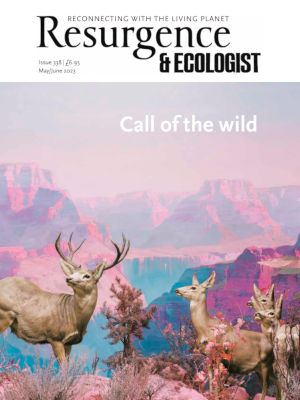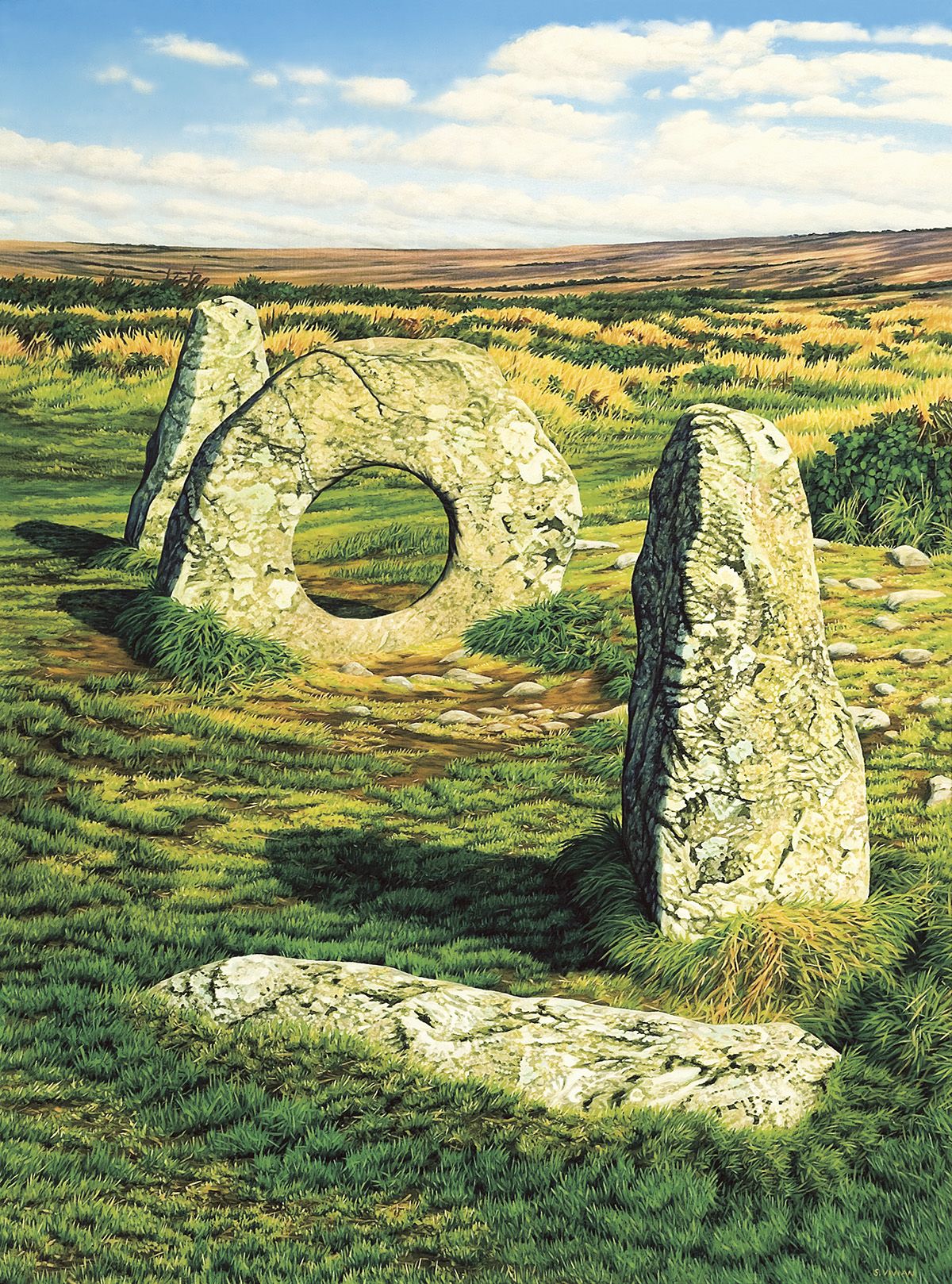While I was out walking in West Penwith, Cornwall in November 2022, an idea occurred to me. I was with artist Lally MacBeth and film producer Denzil Monk. Denzil had recently finished shooting the film we know today as Enys Men, about a volunteer documenting climate change on an imaginary island of that name, which translates from the Cornish language, Kernewek, as Stone Island.
In the film, the volunteer is reading a copy of A Blueprint for Survival. This text was originally published as a special edition of The Ecologist magazine in January 1972. This fact, like the idea that was germinating, was one of a series of serendipitous experiences and events that led to the formation of Stone Club.
A twofold idea came to us initially. First, the lifting of the enforced limitations of travel during the lockdowns of 2020 and 2021 meant that once again we could venture out, meet friends and strangers on walks, and cautiously begin to put our social lives back together. We would come across some people numerous times at ancient sites and hold conversations before moving on. What if there were a club, I thought, for people who like ancient sites and standing stones and stone circles? A club that meant you could easily meet with the other members? I remember how excited I had been to join the Dennis the Menace fan club as a child. I’d sent off my money and received the fan club badge and a fluffy googly-eyed Gnasher badge. With these came a membership card I could show to friends as they also became members. An innocent and joyful club.
The second strand went a little deeper. It was in response to a world that felt increasingly binary and divided. Actively so. Leaver or remainer, pro vaccination or anti-vaxer, climate change activist or denier – on top of which came the first war in Europe in my lifetime. Why was there so much disagreement and such strength of feeling at each end of the spectrum?
Well, the reasons are many and complex, of course. But what if we could all agree on one thing? What if we could agree that a stone circle is an amazing thing? The reasons why we could bond over stones would be many – from the academic to the spiritual to simply having a modest interest. Archaeologists, geologists, poets, musicians, writers, dowsers, those of any faith, ramblers, right-to-roamers, dog walkers, and anyone out walking just to feel closer to being a part of Nature would all be equally welcome. If we could agree on liking, loving or at least having an interest in one shared thing, then surely there would be an opportunity for conversations with acceptance and respect and the beginning of a new (ancient) inclusive space for us all.
The next step was to initiate a walk and put this to the test. This led to us arranging picnics at ancient sites across the land here in the UK, and for one group in Central Park, New York. The idea was that these would be occasions where members could meet friends and strangers and share food, ideas, folklore and stories.
Then Lally and I decided to hold our first Stone Club event. We put on a night of talks and films and music at The Social on Little Portland Street, in central London. We had contributions from well-known artists Jeremy Deller and Brian Catling, plus work Lally and I had made especially for the event, as well as a series of friends giving talks associated with our ancient past which explored how looking so far back could be a useful way of working out where we are heading.
Since that first event, we have put together talks and film screenings for The British Museum, the Institute of Contemporary Arts and Tate Britain in London, as well as for a brewery taproom in Penryn, Cornwall, a bookshop in Wendover, Buckinghamshire, an arts centre in Stroud, Gloucestershire, and a number of festivals, from very intimate lesser-known venues to large institutions.
Most recently we welcomed Annebella Pollen, Professor of Visual and Material Culture at the University of Brighton, to talk about the Kindred of the Kibbo Kift and their evolution into the Woodcraft Folk (as well as in other less agreeable directions). From Ben Pitcher we heard about Stone Circles as antifascist spaces, and we listened to music by the young folk song collective Broadside Hacks, who have a beautifully inclusive approach to traditional folk songs.
As I write this, we are approaching member number 2,000, and I think of all those people out there somewhere who are the beating heart of Stone Club. Members share with us accounts and photographs of their visits to sites, to host on our website. Some of these are diaries of a day out, some with a certain expertise of specialist knowledge of a place or area. Some are much more personal and very moving. We have read of people visiting sites that represent a lost family member, as a method of remembrance. We have learnt of proposals, engagements, marriages and ways of reconnecting with friends and many happy childhood memories. We have a large gathering of people on social media (many more than we have active members), and we encourage people to get involved in whichever way they wish to.
There is definitely a growing interest in our ancient past, in folk culture, in folk song. In reconnecting with Nature. I’m sure this is something many people my age (forties) or older recognise as happening in cycles, as the natural cycles themselves come and go. I hope, though, that this is a time for some of these interests to go much deeper and last much longer. For a new generation to identify as being a part of Nature, rather than apart from Nature. With Stone Club we actively support this idea by suggesting places to visit, walks suitable for those who are well accustomed to a long hike, and walks for those who are not for whatever reason and need more accessible sites.
We will continue to programme events that offer various views connected to ancient sites, and we welcome you to come along and join us whenever you can, in person or online, because, as our second rule states, Stone Club is for EVERYONE.
WELCOME TO STONE CLUB
Recreating prehistory since 2021
Founded by artists Lally MacBeth and Matthew Shaw, Stone Club was set up as a place for stone enthusiasts to congregate, to muse and most importantly to stomp to stones. Stone Club believes the journey is as important as the destination and encourages people to pause and think about place in new ways. Connecting ancient sites through community and conversation, Stone Club aims to bring new perspectives to prehistory in a collaborative and inclusive way.
And of course, don’t forget the rules of Stone Club:
First rule of Stone Club is
Tell everyone about Stone Club
Second rule of Stone Club is
Stone Club is for everyone
Third rule of Stone Club is
Pack a mac & pack a snack
Fourth rule of Stone Club is
Rules are for breaking!








